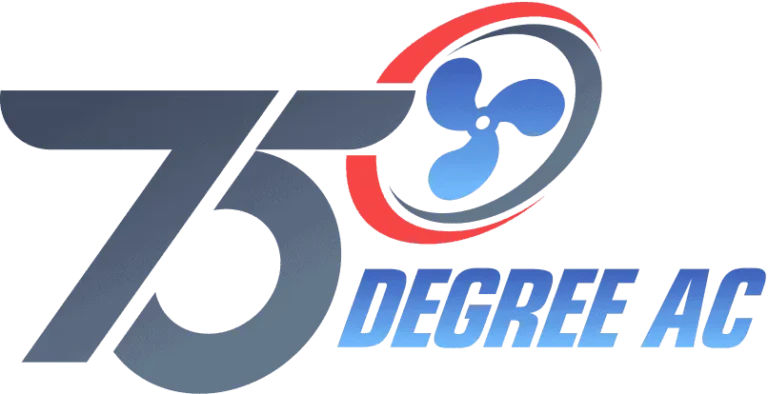When your AC fails during a scorching Houston summer or your heater stops working on a chilly January night, finding the right HVAC repairman becomes an urgent priority. Yet rushing into a decision without proper vetting can lead to costly mistakes, subpar repairs, and recurring problems that drain both your wallet and patience. The difference between hiring a qualified HVAC professional and settling for the first available technician can mean thousands of dollars in unnecessary repairs and years of reliable comfort versus constant system failures.
Every year, homeowners across Texas lose an estimated $1.2 billion to unqualified contractors and improper HVAC repairs, according to the Texas Department of Licensing and Regulation. This guide will arm you with the knowledge to select a trustworthy HVAC repairman who delivers quality work at fair prices, ensuring your home comfort systems operate efficiently for years to come.
Understanding HVAC Repair Credentials and Licensing
The foundation of choosing the right HVAC repairman starts with verifying proper credentials. In Texas, HVAC technicians must hold an active license from the Texas Department of Licensing and Regulation (TDLR). This requirement isn’t just bureaucratic red tapeit ensures technicians have completed necessary training, passed competency exams, and maintain liability insurance to protect homeowners.
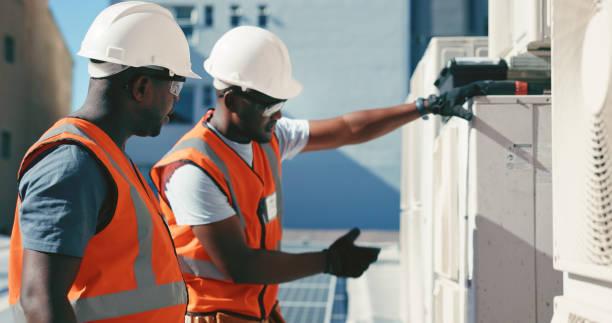
Licensed HVAC professionals undergo rigorous training covering refrigerant handling, electrical systems, airflow dynamics, and safety protocols. When evaluating potential repairmen, request their license number and verify it through the TDLR website. Any hesitation to provide this information should raise immediate red flags.
EPA Certification Requirements
Beyond state licensing, reputable HVAC technicians must hold EPA Section 608 certification for refrigerant handling. This federal requirement ensures technicians understand environmental regulations and safe handling procedures for potentially harmful refrigerants. Working with non-certified individuals not only risks improper repairs but can result in environmental violations with fines reaching $44,539 per day according to EPA enforcement guidelines.
Insurance and Bonding Protection
Professional HVAC repairmen carry both general liability insurance and workers’ compensation coverage. This dual protection shields homeowners from financial responsibility if property damage occurs during repairs or if a technician suffers injury on your property. Request proof of insurance before allowing any work to beginlegitimate contractors readily provide this documentation.
Experience and Specialization Matters
HVAC systems have evolved dramatically over the past decade, incorporating smart technology, variable-speed components, and enhanced efficiency features. An HVAC repairman with 20 years of experience might excel at servicing older systems but struggle with modern equipment if they haven’t maintained current training.
When evaluating experience, consider both years in business and specific expertise with your system type. A technician specializing in commercial HVAC systems might not be the ideal choice for residential mini-split repairs. Similarly, someone primarily focused on new installations may lack the diagnostic skills for complex repair scenarios.
Brand-Specific Training and Certifications
Major HVAC manufacturers like Carrier, Trane, Lennox, and Rheem offer specialized training programs for technicians. These certifications indicate advanced knowledge of specific equipment lines and often provide access to technical support and genuine replacement parts. When your system needs repairs, a technician certified by your equipment manufacturer brings valuable expertise and potentially maintains your warranty coverage.
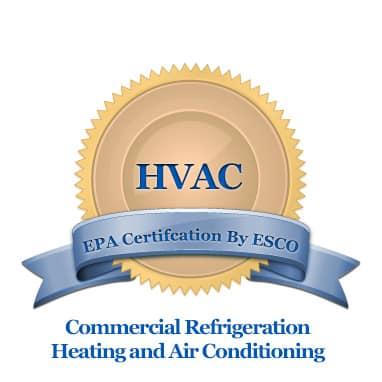
Red Flags to Avoid When Selecting an HVAC Repairman
Recognizing warning signs can prevent costly mistakes and protect your home investment. The Better Business Bureau reports that HVAC services consistently rank among the top consumer complaint categories, with many issues stemming from preventable selection errors.
Suspiciously Low Pricing
While everyone appreciates competitive pricing, quotes significantly below market average often indicate corners being cut. According to HomeAdvisor data, average HVAC repair costs range from $150 to $450, with complex repairs reaching $1,000 or more. Quotes dramatically below these ranges might signal:
- Use of inferior or refurbished parts
- Lack of proper licensing and insurance
- Hidden fees that emerge after work begins
- Inexperienced technicians learning on your system
- Bait-and-switch tactics to upsell unnecessary services
High-Pressure Sales Tactics
Legitimate HVAC professionals understand that system replacement represents a significant investment requiring careful consideration. Be wary of technicians who:
- Demand immediate decisions without providing written estimates
- Claim your system poses immediate safety risks without clear explanation
- Offer “today only” discounts that expire when they leave
- Refuse to discuss repair options, pushing only full replacement
- Cannot explain technical issues in understandable terms
Questions Every Homeowner Should Ask
Preparing the right questions helps evaluate potential HVAC repairmen effectively. These inquiries reveal professionalism, expertise, and commitment to customer service:
Technical Competency Questions
| Question | What to Listen For | Red Flag Responses |
|---|---|---|
| What’s your diagnostic process? | Systematic approach including visual inspection, electrical testing, refrigerant checks | “I’ll know when I see it” or vague explanations |
| How do you determine repair vs. replacement? | Discussion of age, repair history, efficiency ratings, cost-benefit analysis | Immediate replacement recommendation without assessment |
| What warranties do you offer? | Clear explanation of parts and labor warranties | No warranty or unclear terms |
| Can you provide a detailed written estimate? | Itemized breakdown of parts, labor, and timeline | Verbal estimates only or reluctance to document |
Business Practice Questions
Understanding how an HVAC company operates reveals their professionalism and reliability. Ask about their scheduling flexibility, emergency service availability, and payment options. Established companies like those offering 24/7 emergency service demonstrate commitment to customer needs beyond regular business hours.
The Importance of Reviews and References
Online reviews provide valuable insights into an HVAC repairman’s track record, but understanding how to interpret them requires nuance. A Harvard Business School study found that a one-star increase in Yelp ratings correlates with a 5-9% increase in business revenue, motivating some companies to manipulate reviews.
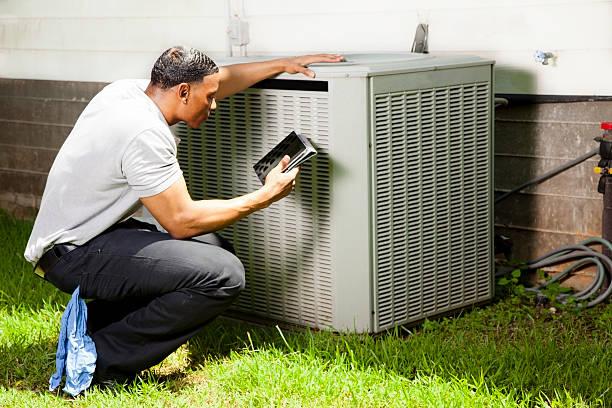
Evaluating Online Reviews Effectively
Look for patterns in reviews rather than focusing on individual complaints or praise. Consistent mentions of punctuality, fair pricing, and successful repairs indicate reliable service. Pay particular attention to how companies respond to negative reviewsprofessional responses addressing concerns demonstrate accountability and customer focus.
Review platforms to check include:
- Google Business Profile – Typically the most comprehensive and current
- Better Business Bureau – Provides complaint history and resolution rates
- Yelp – Offers detailed customer experiences and photos
- Angie’s List – Features verified customer reviews with project details
- Facebook – Shows community engagement and local reputation
The Value of Personal References
While online reviews offer broad perspectives, personal references from neighbors, coworkers, or family members who’ve used an HVAC repairman provide trusted insights. Local community groups and neighborhood social media pages often feature discussions about reliable service providers, offering real-world experiences from people facing similar climate challenges.
Understanding Pricing and Avoiding Overcharges
HVAC repair pricing varies based on system complexity, required parts, and local market conditions. Understanding typical cost structures helps identify fair pricing and avoid overcharges that plague the industry.
Common HVAC Repair Pricing Models
Most HVAC repairmen use one of three pricing approaches:
- Time and Materials: Charges hourly labor rates plus parts costs with markup
- Flat Rate: Pre-determined prices for specific repairs regardless of time required
- Hybrid: Diagnostic fees plus flat rates for identified repairs
Each model has advantages, but transparency matters most. Reputable contractors explain their pricing structure upfront and provide detailed estimates before beginning work. Services like free estimates demonstrate confidence in fair pricing and help homeowners make informed decisions.
Typical HVAC Repair Cost Ranges
| Repair Type | Average Cost Range | Factors Affecting Price |
|---|---|---|
| Capacitor Replacement | $120 – $250 | Part quality, system accessibility |
| Refrigerant Recharge | $200 – $550 | Refrigerant type, amount needed, leak repairs |
| Blower Motor Repair | $150 – $450 | Motor type, warranty coverage |
| Compressor Replacement | $1,500 – $2,500 | Unit size, brand, refrigerant type |
| Thermostat Replacement | $150 – $500 | Smart features, compatibility requirements |
Emergency HVAC Repairs: Special Considerations
When HVAC systems fail during extreme weather, the urgency to restore comfort can cloud judgment. Emergency situations require balancing speed with due diligence to avoid exploitation by unscrupulous operators who prey on desperate homeowners.
According to Consumer Reports, emergency HVAC calls typically cost 1.5 to 3 times standard rates, making careful selection even more critical. Establishing a relationship with a trusted HVAC repairman before emergencies arise provides peace of mind and often preferential scheduling during peak demand periods.
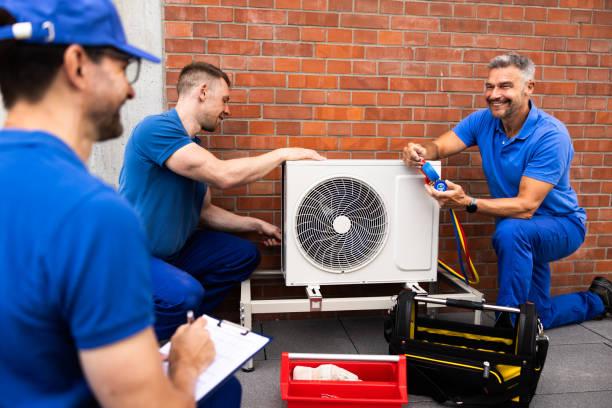
Preparing for HVAC Emergencies
Smart homeowners maintain a list of pre-vetted HVAC repairmen before problems arise. This preparation prevents hasty decisions when systems fail. Consider researching and saving contact information for:
- Primary HVAC service provider with proven track record
- Backup option for peak season availability issues
- Emergency service specialists for after-hours needs
- Manufacturer hotlines for warranty-covered repairs
The Benefits of Preventive Maintenance Programs
Regular maintenance by qualified HVAC professionals prevents many emergency repairs while extending system lifespan. The Department of Energy reports that proper maintenance can reduce HVAC energy consumption by up to 30% while preventing up to 95% of system failures.
When selecting an HVAC repairman, inquire about preventive maintenance plans that typically include:
- Bi-annual system inspections and tune-ups
- Priority scheduling for repair needs
- Discounted rates on parts and labor
- Extended warranties on repairs
- 24/7 emergency service access
- Filter replacement reminders and service
Maintenance Program ROI Analysis
While maintenance programs require upfront investment, typically ranging from $150 to $500 annually, the return on investment proves substantial. A study by the National Association of Home Builders found that regular HVAC maintenance extends system life by an average of 5-7 years, translating to thousands in deferred replacement costs.
Technology and Modern HVAC Repair
Today’s HVAC systems incorporate sophisticated technology requiring specialized diagnostic equipment and expertise. When evaluating HVAC repairmen, consider their capability with modern diagnostic tools and smart system integration.
Advanced diagnostic equipment includes:
- Digital manifold gauges for precise refrigerant measurements
- Thermal imaging cameras for identifying hidden issues
- Combustion analyzers for furnace efficiency testing
- Airflow meters for ductwork assessment
- Electrical meters for component testing
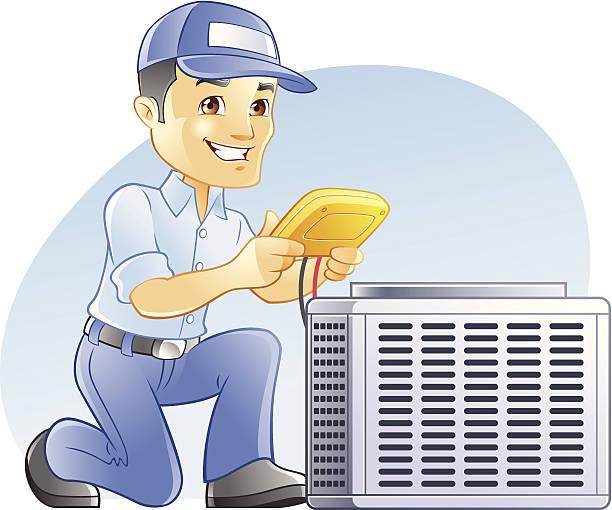
Technicians investing in current technology demonstrate commitment to accurate diagnostics and efficient repairs. This equipment investment often correlates with ongoing training and professional development.
Environmental Considerations and Energy Efficiency
Responsible HVAC repairmen understand the environmental impact of their work and prioritize energy-efficient solutions. With residential HVAC systems accounting for approximately 12% of U.S. energy consumption according to the Energy Information Administration, choosing environmentally conscious repair practices benefits both homeowners and the planet.
Look for HVAC repairmen who:
- Properly recycle old equipment and refrigerants
- Recommend Energy Star certified replacement parts
- Conduct energy audits to identify efficiency improvements
- Offer duct sealing and insulation services
- Educate on programmable thermostat benefits
Conclusion: Making the Right Choice for Your Home
Selecting the right HVAC repairman requires careful evaluation of credentials, experience, reputation, and business practices. The investment in thorough vetting pays dividends through reliable repairs, fair pricing, and long-term system performance. Remember that the cheapest option rarely provides the best value, while the most expensive doesn’t guarantee superior service.
Key takeaways for choosing an HVAC repairman include verifying proper licensing and insurance, checking reviews and references, understanding pricing structures, and establishing relationships before emergencies arise. Professional HVAC companies demonstrate transparency in all aspects of their business, from upfront pricing to clear communication about repair needs.
By following this guide’s recommendations, you’ll confidently select an HVAC repairman who protects your investment, ensures your comfort, and provides peace of mind for years to come. Quality HVAC service isn’t just about fixing immediate problemsit’s about partnering with professionals who understand your home’s unique needs and deliver solutions that stand the test of time.
Ready to experience the difference professional HVAC service makes? Contact 75 Degree AC at (713) 598-2737 for expert AC repair and installation services throughout Houston. Our licensed technicians provide upfront pricing, quality workmanship, and the reliable service your home deserves.
Frequently Asked Questions
How can I verify if an HVAC repairman is properly licensed?
In Texas, verify HVAC licenses through the Texas Department of Licensing and Regulation (TDLR) website. Enter the technician’s name or license number to confirm active status, check for complaints, and verify insurance coverage. Legitimate contractors readily provide their license numbers and welcome verification.
What’s the average cost for a typical HVAC service call?
Standard HVAC service calls typically range from $75 to $200 for the diagnostic fee, with repairs averaging $150 to $450 depending on the issue. Emergency or after-hours calls often double these rates. Always request written estimates before authorizing repairs to avoid surprise charges.
Should I get multiple quotes for HVAC repairs?
For repairs exceeding $500 or system replacements, obtaining 2-3 quotes helps ensure fair pricing and appropriate solutions. However, for emergency repairs or minor issues, working with a trusted HVAC repairman you’ve previously vetted often proves more practical than shopping multiple quotes.
How long should HVAC repairs typically take?
Most common HVAC repairs complete within 1-3 hours, including diagnostic time. Complex repairs like compressor replacements might require 4-8 hours. If parts must be ordered, repairs may span multiple visits. Professional technicians provide realistic timeframes and communicate any delays promptly.
What warranties should I expect on HVAC repairs?
Reputable HVAC repairmen offer minimum 90-day labor warranties and pass through manufacturer warranties on parts, typically 1-10 years depending on the component. Some companies extend labor warranties to one year. Always obtain warranty terms in writing before authorizing repairs.
When should I repair versus replace my HVAC system?
Consider replacement when repair costs exceed 50% of system value, your unit exceeds 10-15 years old, or energy bills consistently increase despite repairs. The “$5,000 rule”multiply system age by repair costsuggests replacement if the result exceeds $5,000. Professional HVAC repairmen provide honest assessments based on your specific situation.
